Ahmad Zaidi
QMSum: A New Benchmark for Query-based Multi-domain Meeting Summarization
Apr 13, 2021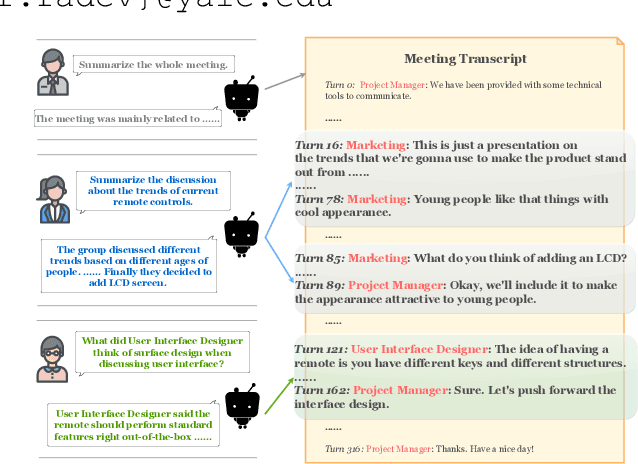

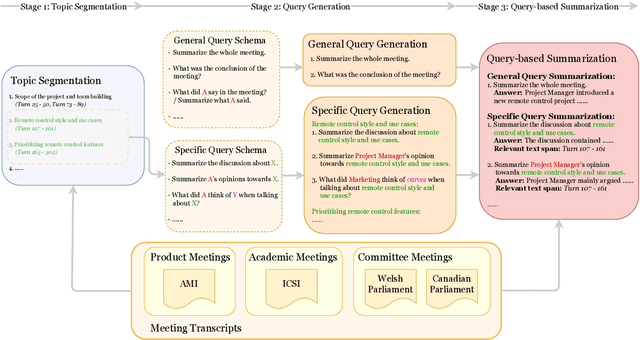
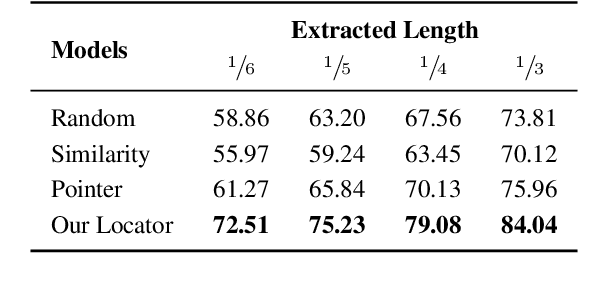
Abstract:Meetings are a key component of human collaboration. As increasing numbers of meetings are recorded and transcribed, meeting summaries have become essential to remind those who may or may not have attended the meetings about the key decisions made and the tasks to be completed. However, it is hard to create a single short summary that covers all the content of a long meeting involving multiple people and topics. In order to satisfy the needs of different types of users, we define a new query-based multi-domain meeting summarization task, where models have to select and summarize relevant spans of meetings in response to a query, and we introduce QMSum, a new benchmark for this task. QMSum consists of 1,808 query-summary pairs over 232 meetings in multiple domains. Besides, we investigate a locate-then-summarize method and evaluate a set of strong summarization baselines on the task. Experimental results and manual analysis reveal that QMSum presents significant challenges in long meeting summarization for future research. Dataset is available at \url{https://github.com/Yale-LILY/QMSum}.
DART: Open-Domain Structured Data Record to Text Generation
Jul 06, 2020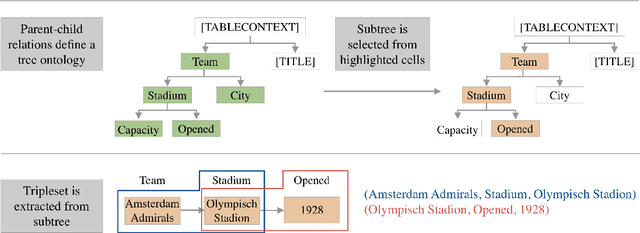

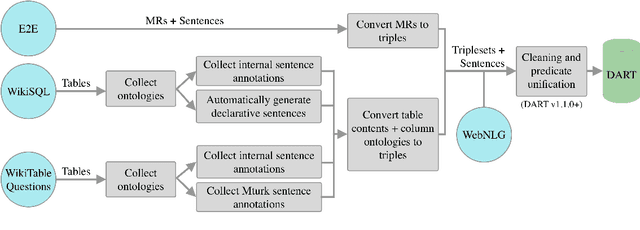

Abstract:We introduce DART, a large dataset for open-domain structured data record to text generation. We consider the structured data record input as a set of RDF entity-relation triples, a format widely used for knowledge representation and semantics description. DART consists of 82,191 examples across different domains with each input being a semantic RDF triple set derived from data records in tables and the tree ontology of the schema, annotated with sentence descriptions that cover all facts in the triple set. This hierarchical, structured format with its open-domain nature differentiates DART from other existing table-to-text corpora. We conduct an analysis of DART on several state-of-the-art text generation models, showing that it introduces new and interesting challenges compared to existing datasets. Furthermore, we demonstrate that finetuning pretrained language models on DART facilitates out-of-domain generalization on the WebNLG 2017 dataset. DART is available at https://github.com/Yale-LILY/dart.
 Add to Chrome
Add to Chrome Add to Firefox
Add to Firefox Add to Edge
Add to Edge